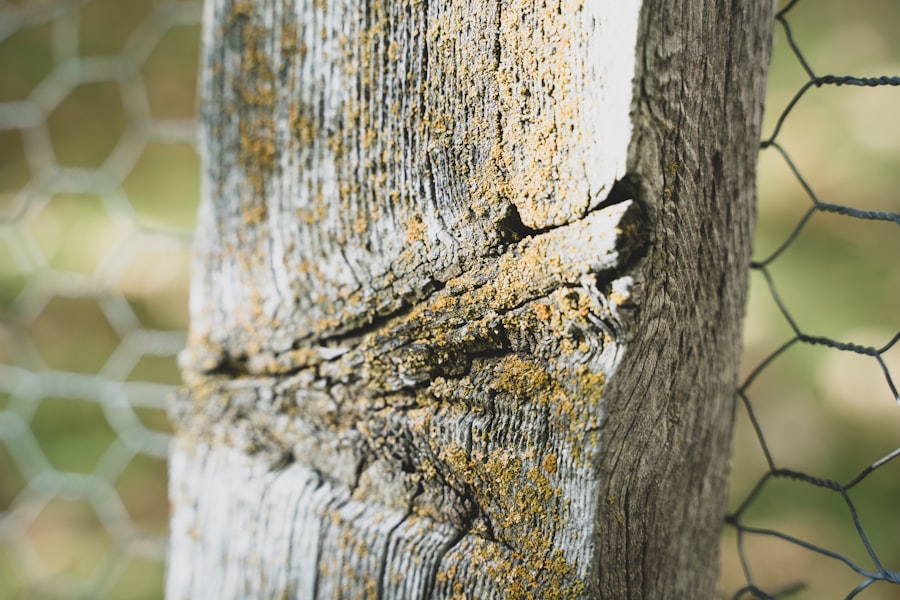Wild chickens, or feral chickens, are domesticated chickens that have returned to a wild state. These adaptable birds inhabit diverse environments, including forests, grasslands, and urban areas. They are primarily ground foragers and live in social groups led by a dominant rooster.
Understanding wild chicken behavior is essential for effective deterrence. Their attraction to food sources and social structure informs strategies to keep them away from properties. Removing potential food attractants and employing appropriate scare tactics based on their social dynamics can be effective in discouraging their presence.
Wild chickens are highly adaptable and resilient, making them a persistent issue for property owners. As opportunistic feeders, they consume a variety of foods, including fruits, vegetables, seeds, and insects. Their ability to thrive in various environments, including residential areas, can lead to damage to gardens and landscaping.
Table of Contents
- 1 Creating Physical Barriers to Deter Wild Chickens
- 2 Using Natural Repellents to Keep Wild Chickens Away
- 3 Removing Food Sources to Discourage Wild Chickens
- 4 Implementing Scare Tactics to Keep Wild Chickens at Bay
- 5 Seeking Assistance from Local Authorities
- 6 Respecting Wildlife While Protecting Your Yard
- 7 FAQs
Key Takeaways
- Wild chickens are attracted to yards by the availability of food, water, and shelter.
- Physical barriers such as fences and netting can effectively deter wild chickens from entering your yard.
- Natural repellents like citrus peels, garlic, and hot pepper can be used to keep wild chickens away.
- Removing food sources such as fallen fruits, seeds, and pet food can discourage wild chickens from frequenting your yard.
- Scare tactics like motion-activated sprinklers, noise makers, and predator decoys can help keep wild chickens at bay.
Creating Physical Barriers to Deter Wild Chickens
Here is the rewritten text with 3-4 Creating Physical Barriers
————————
One effective way to deter wild chickens from entering your property is to create physical barriers that prevent them from accessing your yard. This can be achieved by installing fencing around your property or specific areas of your yard that you want to protect. The fencing should be tall enough to prevent the chickens from flying over it and sturdy enough to withstand their attempts to scratch or peck their way through.
Protecting Vulnerable Areas
—————————
Another option is to use netting or wire mesh to cover vulnerable areas, such as garden beds or fruit trees, to prevent wild chickens from accessing these food sources. This can be particularly effective in areas where wild chickens are known to forage for food, as it creates a physical barrier that is difficult for them to overcome.
Using Deterrent Devices
———————
In addition to physical barriers, you can also use motion-activated sprinklers or noise-making devices to deter wild chickens from entering your property. These devices startle the chickens when they approach, causing them to retreat and avoid the area in the future.
Effective Protection
——————
By creating physical barriers and using deterrent devices, you can effectively protect your yard from the presence of wild chickens.
Using Natural Repellents to Keep Wild Chickens Away

In addition to physical barriers, natural repellents can be an effective way to keep wild chickens away from your property. There are several natural substances that are known to repel chickens, including citrus peels, garlic, and hot peppers. These can be used to create homemade repellent sprays that can be applied to vulnerable areas of your yard, such as garden beds or outdoor seating areas.
Another natural repellent that is effective at deterring wild chickens is predator urine. This can be purchased from garden supply stores and applied around the perimeter of your property to create a scent barrier that discourages wild chickens from entering. Additionally, commercial repellent sprays that contain natural ingredients such as capsaicin or garlic can be effective at keeping wild chickens at bay.
It’s important to note that natural repellents may need to be reapplied regularly, especially after rain or watering, to maintain their effectiveness. However, when used in conjunction with physical barriers and other deterrent methods, natural repellents can be a valuable tool in keeping wild chickens away from your property.
Removing Food Sources to Discourage Wild Chickens
One of the most effective ways to discourage wild chickens from entering your property is to remove potential food sources that may attract them. This includes securing garbage cans with tight-fitting lids, cleaning up fallen fruits and vegetables from the ground, and storing pet food indoors. By eliminating these food sources, you can make your property less appealing to wild chickens and reduce the likelihood of them causing damage to your yard.
In addition to removing food sources, it’s important to consider the layout of your yard and make changes that discourage wild chickens from foraging in certain areas. For example, you can use mulch or gravel in garden beds instead of bare soil, which makes it more difficult for wild chickens to scratch for insects and seeds. You can also use bird netting or row covers to protect vulnerable plants from being damaged by foraging chickens.
By removing food sources and making changes to your yard that discourage foraging behavior, you can effectively reduce the attractiveness of your property to wild chickens. This not only helps protect your yard from damage but also encourages wild chickens to seek out natural foraging opportunities in their native habitat.
Implementing Scare Tactics to Keep Wild Chickens at Bay
Scare tactics can be an effective way to keep wild chickens at bay and discourage them from entering your property. There are several methods that can be used to startle and deter wild chickens, including motion-activated devices, visual deterrents, and noise-making devices. Motion-activated sprinklers are a popular choice for deterring wild chickens, as they startle the birds with a sudden burst of water when they approach a protected area.
This not only discourages them from entering but also conditions them to avoid the area in the future. Visual deterrents such as reflective tape or shiny objects can also be effective at scaring wild chickens away, as they create a visual disturbance that makes the area less appealing. Noise-making devices such as wind chimes or ultrasonic repellers can also be used to startle and deter wild chickens from entering your property.
These devices emit sounds that are unpleasant for the birds and encourage them to seek out quieter areas. By implementing scare tactics in conjunction with other deterrent methods, you can effectively protect your yard from the presence of wild chickens.

If you are experiencing persistent issues with wild chickens on your property, it may be necessary to seek assistance from local authorities. Many municipalities have animal control services or wildlife management agencies that can provide guidance and support in dealing with nuisance wildlife such as wild chickens. Local authorities may be able to provide advice on effective deterrent methods, issue permits for trapping or relocating wild chickens, or even assist with the removal of problem birds.
It’s important to follow local regulations and guidelines when seeking assistance with wild chicken issues, as some methods of control may be restricted or prohibited. In some cases, local authorities may also be able to provide education and outreach programs to help property owners understand how to coexist with wildlife in urban and suburban areas. By working with local authorities, you can access valuable resources and support in managing wild chicken issues on your property.
Respecting Wildlife While Protecting Your Yard
While it’s important to protect your yard from the presence of wild chickens, it’s also important to respect wildlife and their natural behaviors. Wild chickens are a part of the natural ecosystem and play a role in controlling insect populations and aerating soil through their foraging behavior. When implementing deterrent methods or seeking assistance with wild chicken issues, it’s important to do so in a humane and respectful manner.
This includes using non-lethal deterrent methods, avoiding harm to the birds whenever possible, and considering the long-term impact of control measures on the local wildlife population. Additionally, it’s important to consider ways to coexist with wildlife in urban and suburban areas by creating habitat-friendly landscapes that provide natural foraging opportunities for wild chickens and other wildlife. This may include planting native vegetation, providing water sources, and creating wildlife-friendly spaces in your yard.
By respecting wildlife while protecting your yard from the presence of wild chickens, you can create a balanced approach that minimizes conflict and encourages coexistence with the natural world.
If you’re looking for more information on keeping chickens out of your yard, you might also be interested in learning about how big a coop needs to be for a chicken. Check out this article for helpful tips on providing the right amount of space for your feathered friends.
FAQs
What are wild chickens and why are they a problem?
Wild chickens are feral domestic chickens that have escaped or been released into the wild. They can be a problem in urban and suburban areas as they can damage gardens, leave droppings, and create noise disturbances.
How can I keep wild chickens out of my yard?
There are several methods to keep wild chickens out of your yard, including installing fencing, using motion-activated sprinklers, and removing food sources. It’s important to check local regulations before taking any action.
Are there any natural deterrents for wild chickens?
Some natural deterrents for wild chickens include planting prickly or thorny plants, using citrus peels or vinegar as a repellent, and introducing natural predators such as dogs or cats.
What should I do if I encounter wild chickens in my yard?
If you encounter wild chickens in your yard, it’s best to avoid feeding them and to try to scare them away using loud noises or by waving your arms. If the problem persists, consider contacting local animal control or wildlife authorities for assistance.
Can I legally remove wild chickens from my property?
The legality of removing wild chickens from your property varies by location. It’s important to check local regulations and obtain any necessary permits before attempting to remove wild chickens.
Meet Walter, the feathered-friend fanatic of Florida! Nestled in the sunshine state, Walter struts through life with his feathered companions, clucking his way to happiness. With a coop that’s fancier than a five-star hotel, he’s the Don Juan of the chicken world. When he’s not teaching his hens to do the cha-cha, you’ll find him in a heated debate with his prized rooster, Sir Clucks-a-Lot. Walter’s poultry passion is no yolk; he’s the sunny-side-up guy you never knew you needed in your flock of friends!







